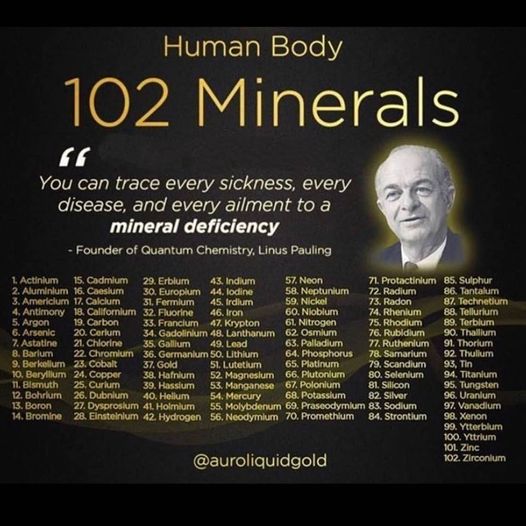
The human body is a complex machine, requiring a delicate balance of various nutrients to function optimally. Among these, minerals play a crucial role that is often overlooked. As highlighted by the pioneering work of Linus Pauling, the founder of Quantum Chemistry, “You can trace every sickness, every disease, and every ailment to a mineral deficiency.”
This statement underscores the fundamental importance of minerals in our overall health. The image lists an impressive array of 102 minerals found in the human body, ranging from commonly known elements like Calcium and Iron to more obscure ones like Ytterbium and Zirconium.
Each of these minerals serves a specific purpose in our bodily functions. For instance:
- Calcium is essential for strong bones and teeth.
- Iron is crucial for oxygen transport in our blood.
- Magnesium plays a role in over 300 enzymatic reactions.
- Zinc is vital for immune function and wound healing.
While not all 102 minerals are required in large quantities, even trace amounts of certain elements can have significant impacts on our health. This highlights the importance of a varied and balanced diet to ensure we’re getting a wide spectrum of minerals.
It’s important to note that while mineral deficiencies can indeed lead to health issues, this doesn’t mean that all diseases are solely caused by mineral deficiencies. Modern medical science recognizes multiple factors in disease development, including genetics, lifestyle, and environmental factors.
Understanding the role of minerals in our health empowers us to make informed dietary choices. By ensuring we consume a diverse range of foods, we can help our bodies maintain the delicate mineral balance necessary for optimal health and well-being.
